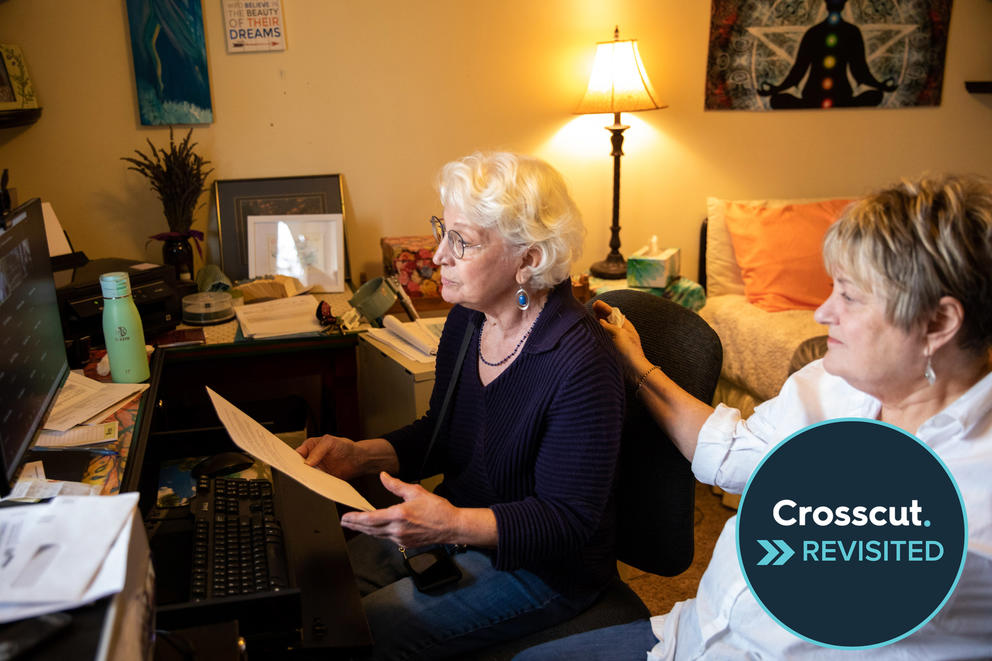For several months this year, Divine Wilder was filled with fear at the prospect of another rent hike and had started looking for a new apartment.
“The next rent raise was going to be out of my reach. That’s what was weighing heavily on me,” she said.
Divine Wilder’s situation shows the urgency many feel as affordability continues to be an issue in communities throughout Washington.
While local and state governments have taken different approaches to address the issue, relief remains elusive. One key policy advocates say will bring that relief — rent stabilization — did not get far during the 2023 legislative session.
But such policies may get more support in the 2024 session as renters like Divine Wilder share their experiences with frequent rent hikes, said Michele Thomas, director of policy and advocacy for the Washington Low Income Housing Alliance, an organization that pushes for laws that address affordability and prevent evictions and homelessness.
Thomas said her organization has heard from many people impacted by housing affordability. They include union workers who see all their raises get absorbed by higher rents and small-business owners who cannot pay their employees enough to keep up with sharp rises in rent.
And of course families cannot save for the future because their incomes aren’t keeping up with housing costs.
“Numbers on a piece of paper can never describe the impact [rent hikes] have on a household,” Thomas said.
Moderating rent increases are still an issue
While rents still rose in 2023, they are climbing at a moderate rate compared to a year or two ago.
The average price of apartment units in Washington was $1,763 in the third quarter of 2023, virtually flat compared to a year earlier, according to figures from the Washington Center for Real Estate Research at the University of Washington. During the same quarter in 2022, the state saw a 4.7% year-over-year increase in the average monthly rent.
In Walla Walla, where Divine Wilder lives, rents averaged $1,258 during the third quarter of this year, a 5.2% jump year-over-year. That’s a slower pace than the 10% year-over-year increase seen in Walla Walla during the same quarter in 2022.
Rent has moderated as communities add to their supply of apartment units, particularly in places like Seattle where there has been robust construction activity, said Steven Bourassa, director of the Washington Center for Real Estate Research.
Government officials and experts believe that increasing supply is crucial to addressing affordability. The state anticipated needing an additional 1.05 million housing units by 2044. The state Legislature and local governments have passed new policies to boost housing stock, such as streamlining regulations and allowing for multifamily units on single-family zoning.
However, Bourassa said that new supply will likely taper off. Housing construction has slowed in recent months due to high interest rates. Developers have been filing permits, but construction is expected to pick up when interest rates come down.
This slowdown is apparent in Walla Walla, especially for multifamily housing. According to data provided by the city as of Dec. 6, permits have been issued for only seven duplexes and no multifamily units. That’s a notable decrease from 2022, when the city issued permits for 29 duplexes and 106 multifamily units.
The Walla Walla City Council has been trying to boost affordable housing with new policies. In June, it altered its multifamily tax incentive program to include areas outside of downtown and raised the percentage of affordable housing — from 20% to 25% — required for the incentive to kick in.
The Council has passed other development policies in the past few years to tackle housing affordability, including allowing for multifamily construction in what was previously single-family zoning.
“We’re hoping it will provide some incentive for multifamily housing developers to make it pencil out,” said Preston Frederickson, development services director for the city of Walla Walla.
The city also passed a new zoning designation for manufactured homes, a vital component of a community’s affordable-housing supply, to ensure those homes remain in the community and the property isn’t used for other types of construction.
Thomas of the Washington Low Income Housing Alliance said that while rents are cooling, that doesn’t necessarily mean renters are getting a break.
For one, lower rents for a quarter or two don’t provide much relief from years of rent surges. In addition, the figures may not reflect additional fees, such as ones for covering utilities, that may lead to a rise in renters’ housing costs.
“You have to look at the whole picture,” Thomas said.
Continued push for rent stabilization
For Thomas, getting rent stabilization passed in the state Legislature is a priority. Under current law, the only requirement is providing a 60-day notice when rents are raised.
Stabilization focuses on capping rent increases to a certain percentage. That’s different from rent control, which freezes rent to a specific price, which has been outlawed in Washington since 1981.
During the most recent session, Senate Bill 5435 and its companion, House Bill 1389, went through a public hearing. Under these proposed bills, annual rent increases would be capped to the rate of inflation or to 3% – whichever is higher – with a maximum of 7%.
Thomas said she expects rent stabilization bills to be proposed in the upcoming session. She believes there will be challenges to getting the bills passed, but there may be more support from lawmakers as they’ve heard from renters and others impacted by rent hikes.
“I think lawmakers understand they cannot fail the voters on this, and they will have to address these excessive rent increases,” she said.
With the help of friends
Back in Walla Walla, as Divine Wilder wondered how she would find the money to cover yet another rent increase, she got some much-needed help.
Through word-of-mouth from friends, she heard of a condo available for $1,000 a month, less than she paid in her former apartment.
Divine Wilder talked to the owner, who told her her focus was to have a stable renter over making money. While there were no guarantees, Divine Wilder felt assured her rent would not go up drastically in the years to come.
She had the place lined up when she received notice in late May that the rent in her current apartment would go up an additional $55 to $1,100 a month. Shortly after receiving that warning, she gave notice that she was moving.
Divine Wilder moved to the condo in July. Now that her rent has gone down and she has paid off her car, she can maintain some savings and stay above water financially.
There are some challenges — her Social Security isn’t keeping up with rising costs overall, but “I don’t feel fearful as I did before,” she said.
Divine Wilder said she realizes she’s fortunate to find a good solution while plenty of others will continue to struggle. She’s also heard stories of those unable to secure affordable housing, such as health care workers.
Fredrickson, the Walla Walla development director, has heard stories as well. Recently he heard of a prospective worker for the Walla Walla Police Department having trouble securing an affordable place to live.
And that impacts not only individual residents but the city as a whole, Fredrickson said. That’s why Walla Walla city leaders have focused on addressing housing costs, he said.
“If people can’t live here and raise kids, what about our institutions, our programs and schools?” he said.



